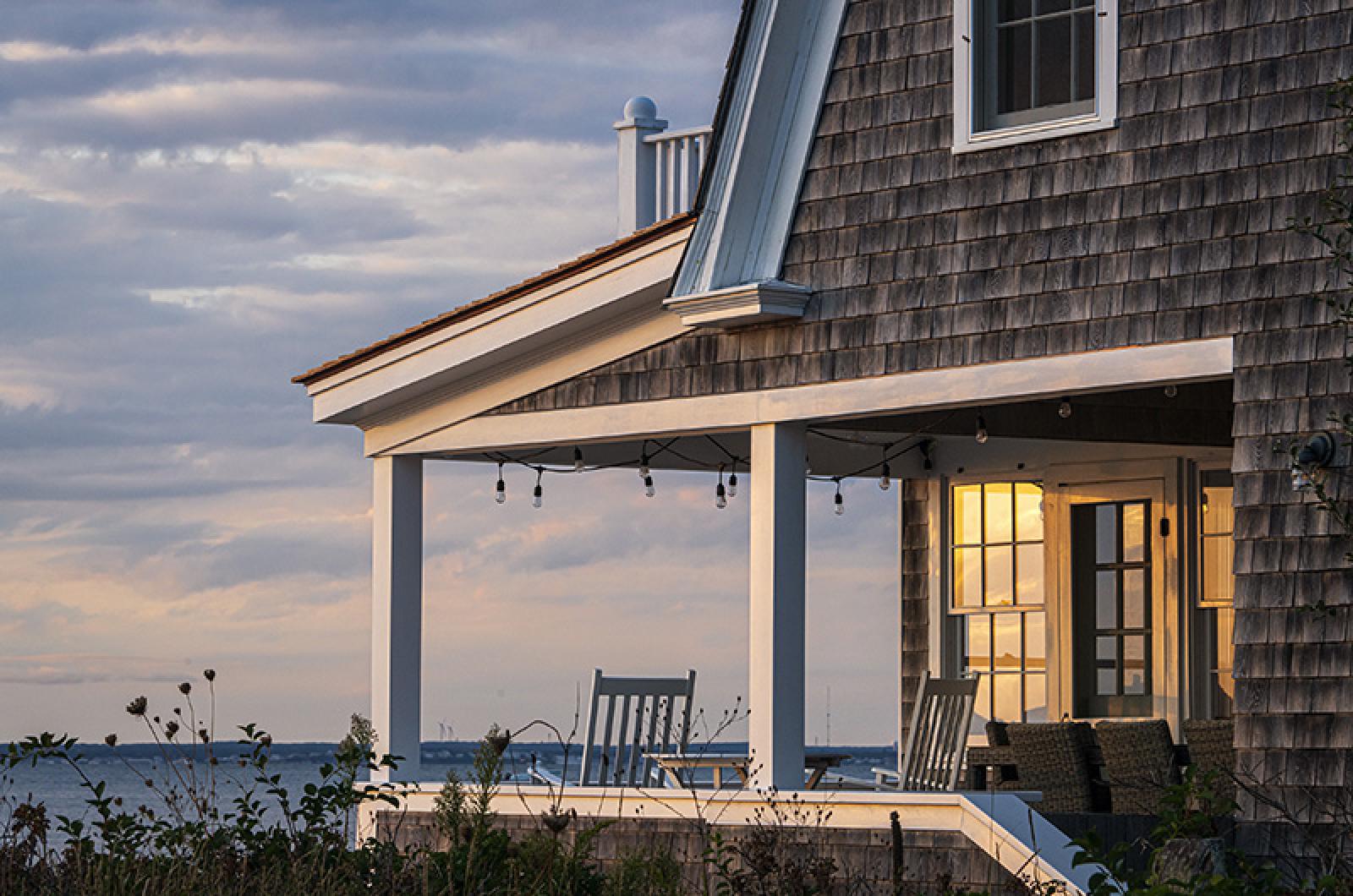Martha’s Vineyard’s first summer with a tax on short-term rentals is in the books, and while towns are reporting strong seasons and busy traffic, real estate brokers, home renters and listing agents are voicing frustration about the effects of the new tax on an already pricey vacation market. Hard numbers are still unavailable, but anecdotal reports on revenue from summer rentals are mixed.
Elizabeth Weedon at WeNeedaVacation.com, a rental website for the Cape and Islands, reported a 3.9 per cent downturn in bookings overall this summer compared to 2018. Martha’s Vineyard saw only a one per cent drop, she said.
“As disappointed as we were that they were down at all, we feared they would be down more because of the rental tax,” Ms. Weedon said. “But that doesn’t mean we haven’t spent a lot of time talking people off a ledge. There have been many instances of lost bookings and having to eat the tax.”
Signed into law at the end of last year, the rental tax expands the 5.7 per cent state hotel and rooms tax to include short-term rentals. Island towns had the option of tacking on a local occupancy tax of up to six per cent. In Oak Bluffs, Tisbury and West Tisbury that translates to an 11.7 per cent tax on short-term rentals. In Edgartown, Chilmark and Aquinnah, the number is 9.7 per cent.
The law took effect July 1. A short-term rental is defined as any occupied property rented out for less than 31 days. Properties that are rented out for less than two weeks in a calendar year are exempt from the tax.
The first payments to the state were due August 20, and are due on the 20th day of every month after that. While the state Department of Revenue is responsible for returning the tax to the towns on a quarterly basis, landlords are responsible for collecting the money from tenants, and are required to register their properties online through MassTaxConnect. For many, that has proved a difficult logistical challenge.
“Realtors are really getting hurt by this situation,” Ms. Weedon said. “They are tasked with collecting the tax and remitting it to the state. A lot of these realtors on the Vineyard are small shops. They don’t have the personnel for that and it’s been very disruptive for them.”
Anne Mayhew of Sandpiper Realty agreed.
“It’s challenging. It’s challenging because I don’t think that the law was well-written and there could be different interpretations, and we had to sit back and see what the DOR was going to determine,” she said.
Sandpiper rents out between 700 and 800 properties on the Island, with a concentration in Edgartown. WeNeedaVacation lists more than 400 rental properties across the Vineyard.
With the new tax, Ms. Mayhew said the company had to update its software to properly report remittances to the state, figure out when the best time would be to collect payments from vacationers, and where to post certificates of occupancy within rental properties.
“This year, we collected the tax on the final payments because there were so many unknowns,” she said. “When we book a property, there’s a two payment lease. Half is due at signing, half is due 60 days prior to arrival. But if a tenant isn’t forthcoming about the second payment, then the liability would be on me for the tax.”
Despite that, Ms. Mayhew said Sandpiper had its best rental year ever. She said she was proactive about informing renters of the tax. But she did express
concern about repeat bookings now that the tax will be in effect for all of next summer. Some people who don’t have ties to the Vineyard have hinted they will look for areas with cheaper overall rentals, she said. Rentals booked before Jan. 1, 2019 were exempt from the tax this year.
“We had a fantastic summer,” Ms. Mayhew said. “It was a peak year again for us . . . Since the law came about on Jan. 1 it did not seem to slow down the bookings. We are getting some pushback now from our repeat tenants because some of them may not have heard about the tax.”
Contacted by the Gazette Thursday, a spokesman for the DOR was unable to immediately provide information on the amount of revenue collected so far from the new tax this summer.
Oak Bluffs town administrator Bob Whritenour said while he is still waiting on numbers from the state, the rental tax didn’t appear to affect business in the town. Seasonal receipts from the harbor, as well as food and rooms excise taxes were up five per cent over last summer.
“We had a very robust July and August,” Mr. Whritenour said. “It was very busy here in town.”
Ms. Weedon said factors other than the rental tax could also account for the downturn in bookings in the region. She said the value of the dollar is strong against the Euro, which could have prompted vacationers to travel out of the country. Every state in New England has now adopted a short-term rental tax.
With the tax in full effect for the 2020 summer, Ms. Mayhew and Ms. Weedon said increased awareness could help stave off sticker shock for renters. A legal advocacy group for the Massachusetts Board of Realtors is working with the Department of Revenue to hammer out some issues like occupancy certificates. And Ms. Mayhew said she is encouraging renters not to increase rates because of the tax.
“Any of our tried-and-true repeat tenants are coming back — they may not be happy about it but they are swallowing it and going to come back,” she said.
Meanwhile, Ms. Weedon said inquiries for the 2020 summer are soaring, with a 32 per cent increase in 2020 prebookings over this same time last year.
“It is the new norm, and people will have to accept it one way or another,” she said.




Comments (11)
Comments
Comment policy »